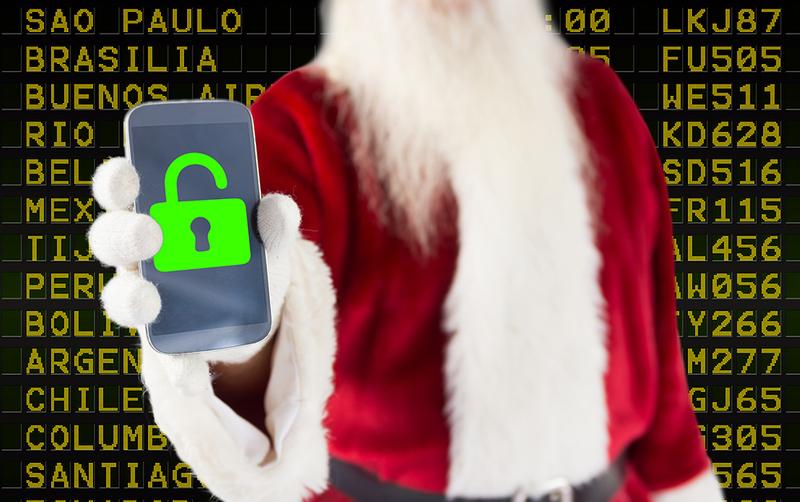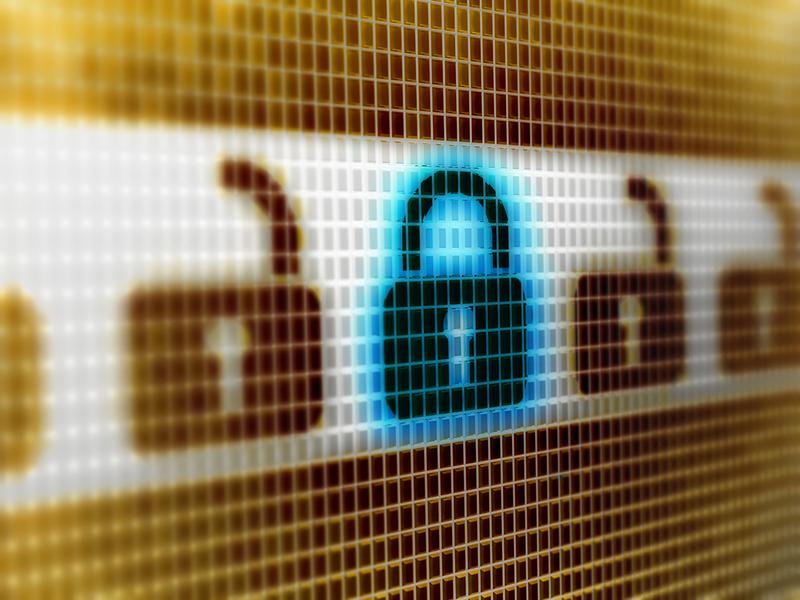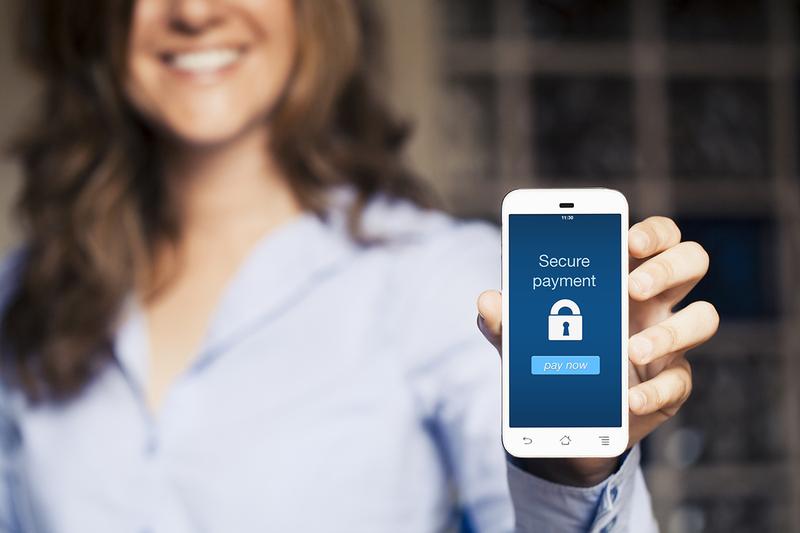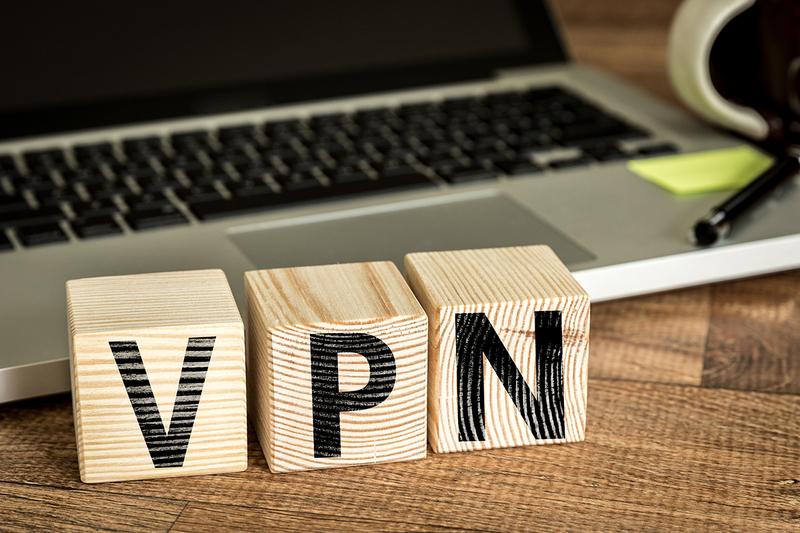5 Tips for Keeping Your Data Safe During Holiday Season Travel

Now that the Holiday season is upon us, you may find yourself traveling to celebrate with friends and family. While you’re traveling you will almost certainly be using your phone and possibly other wireless devices to check email, bank balances and tons of other private information.
Hackers know this and according to this article on ABC News cyber crime spikes during the holiday season.
Follow these 5 tips in order to keep your data safe and secure while traveling this holiday season.
Tip # 1: Update all of your operating systems and passwords.
One of the major reasons your operating systems ask you to update is to avoid holes the development team has found that leave you vulnerable. Earlier this year almost one third of Apple’s IOS devices were vulnerable to masque attacks which happen when a hacker creates a program that looks just like Facebook or other popular apps but is actually used to phish information. All users who had not updated to IOS version 8.4 were at risk as recently as August according to this article in PC World.
One of the major reasons your operating systems ask you to update is to avoid holes the development team has found that leave you vulnerable. Earlier this year almost one third of Apple’s IOS devices were vulnerable to masque attacks which happen when a hacker creates a program that looks just like Facebook or other popular apps but is actually used to phish information. All users who had not updated to IOS version 8.4 were at risk as recently as August according to this article in PC World.
While you’re updating your software, it’s also a good idea to update the passwords for all of your important accounts from online merchants like Amazon .com to your email address, especially if your emails contain sensitive workplace information. In some cases people have been known to lose their jobs because of information hacked from their emails. It’s a good idea to use 1a 10 character password with at least one upper case letter, number and symbol.
Tip # 2: Don’t Click on “Too Good To Be True” Offers.
During the holiday season, you will probably see offers that seem “too good to be true” in your email and on social media sites like Facebook. Don’t click on them!
The exception of course is if they are from reputable retailers, using their official email addresses or pages. But be especially vigilant if you see a shortened URL as this makes it much easier for cybercriminals to disguise their malicious links.
One of hacker’s favorite tricks during the gift giving season is to post links for free gift cards, or ridiculous deals on the hottest gift of the season in order to get the victim to click and invite the hacker into their system.
Don’t be fooled. If an offer seems too good to be true or is being posted by someone who normally doesn’t post such offers, steer clear!
Tip # 3: Use a VPN when connecting to public WIFI
When you’re traveling you will probably find yourself in an airport, coffee shop or restaurant with public WIFI.
While public WIFI can be a great help, it is also a hunting ground for hackers and identity thieves looking to use your credit card information to buy presents for themselves.
If you’re going to take advantage of the often times free WIFI, you must use a virtual private network (VPN). A VPN protects your data by disguising your IP address rendering you virtually anonymous while online.
Another option is to eschew public WIFI entirely and use the internet on devices such as your cellphone or tablet which have their own secure internet connection. Though this will use up more of your data plan than connecting to the public WIFI, it is much safer than just connecting without a VPN. Luckily most VPN services now offer a mobile option as well.
Tip # 4: Use safe payment options.
When making purchases this holiday season whether for yourself or others, make sure that you use secure payment options.
The best payment options online are credit cards and Paypal, as both offer excellent consumer protection.
Paypal is particularly secure as it allows you 30 days to refund payment if it is not received by the intended party (Ie hijacked) and 180 days to get a refund if the product or service is not to your liking.
Debit cards rarely offer fraud protection and if they do, it will likely take months for you to get your money back, if you can get it back at all.
Debit cards rarely offer fraud protection and if they do, it will likely take months for you to get your money back, if you can get it back at all
The last tip is an important and overlooked one, when checking out on any ecommerce site this holiday season make sure you set up an account, rather than opting for guest checkout.
Not only does setting up an account allow you to track your order and get better customer service, it also provides an additional layer of protection through email authentication.
Most computers allow you to store your credit card information with keychain style programs. With guest checkout enabled, anyone with physical or virtual access to your computer could use your credit cards to checkout.
With guest checkout disabled, you will be notified of any purchase that is made and can instantly refund any erroneous or fraudulent purchases. Just be sure not to save your login info on your computer!
In Conclusion
The holiday season is a great time for online shopping and gift giving, if you follow these 5 simple tips you will be able to enjoy the holidays with your loved ones rather than on the phone with customer service or your bank dealing with fraud.
Happy holidays and stay safe!



